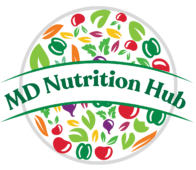Top Back-to-School Health Tips for a Healthy School Year
As summer fades and the school year approaches, it’s important to ensure that both students and parents are prepared for a healthy and successful academic year. I remember dreading the start of school because typically one child would come home with some type of illness, which led to the other two kids getting sick too. Here are some Back-to-School Health Tips for a healthy school year to help boost immunity and maintain energy levels so everyone can start off on the right foot. 1. Prioritize Balanced Nutrition A well-rounded diet is crucial for maintaining energy levels and overall health. Focus on incorporating a variety of foods into your meals, including: Fruits and Vegetables: Aim for a colorful plate with a mix of fruits and vegetables. They are packed with essential vitamins and minerals. Whole Grains: Opt for whole-grain options like brown rice, oatmeal, and whole-wheat bread to maintain energy. Lean Proteins: Include sources like chicken, fish, beans, and nuts to support muscle growth and repair. Plan Ahead: I like to plan meals on the weekend so that I know what we are having during the week (especially helpful for those who have busy schedules with kids). 2. Start the Day with a Healthy Breakfast Breakfast is the most important meal of the day, especially for students who need to stay focused and energized. Choose options that combine protein, fiber, and healthy fats, such as: Greek yogurt with fruit and a sprinkle of nuts Whole-grain toast with avocado and a poached egg Smoothies made with spinach, banana, and almond milk (I use the Juice Plus Complete Shake which is very versatile and comes in vanilla and chocolate). Send me a message to try a sample. 3. Stay Hydrated Proper hydration is key to maintaining cognitive function and physical performance. Encourage kids to drink water throughout the day. Limit sugary drinks and consider adding: Infused Water: Add slices of lemon, cucumber, or berries for a flavorful boost. Herbal Teas: Opt for caffeine-free options like chamomile or peppermint. 4. Pack Nutritious Lunches When preparing school lunches, aim for a balance of macronutrients: Lean Proteins: Chicken slices or low-fat cheese sticks Complex Carbs: Quinoa, whole-grain wraps, or whole-grain bread Fresh Produce: Carrot sticks, apple slices, or a side salad – kids also enjoy growing their vegetables and will usually eat what they grow. Some schools have added Tower Gardens allowing kids to grow food in the classroom and they will usually eat what they grow. Using a variety of colorful vegetables can make lunch more appealing and nutritious. 5. Healthy Snack Choices Healthy snacks can prevent overeating at meal times and maintain energy levels. Keep these snacks handy: Nuts and Seeds: Almonds, sunflower seeds, and pumpkin seeds Fruit: Fresh fruit or dried fruit like raisins and apricots Vegetable Sticks: Pair with hummus or a yogurt dip 6. Limit Processed Foods and Sugars Excessive sugar and processed foods can lead to energy crashes and affect concentration. Reduce the intake of: Sugary Cereals: Opt for unsweetened or low-sugar alternatives. Packaged Snacks: Choose whole foods over chips or cookies. Soda and Sweetened Drinks: Replace with water, milk, or 100% fruit juice 7. Choose Supplements Wisely & Try Some Free Products Kids don’t always get all the nutrients they need so may need supplements to fill the gaps. Multivitamins can do more harm than good sometimes. Instead of a synthetic multivitamin, choose a whole food nutritional supplement like the one I recommend (Juice Plus made from whole fruits and vegetables from a farm…you could say FARMacy rather than PHARMacy). These products are amazing and have made such a difference in our lives. At a visit to the pediatrician after starting my kids on Juice Plus, the doctor was surprised to say that my daughter hadn’t had any sick visits within the year, (which was unusual). With their Healthy Starts program a child can get the product FREE from their 4th birthday until they are 26 years old (with a paying adult supply) – buy one get one free is always good! Click here for a free Back to School Planning Guide which includes a lunchbox planner, delicious snack guide, and the Start Strong Challenge We hope these back-to-school health tips can help your kids have a healthy and successful school year!
Top Back-to-School Health Tips for a Healthy School Year Read More »



